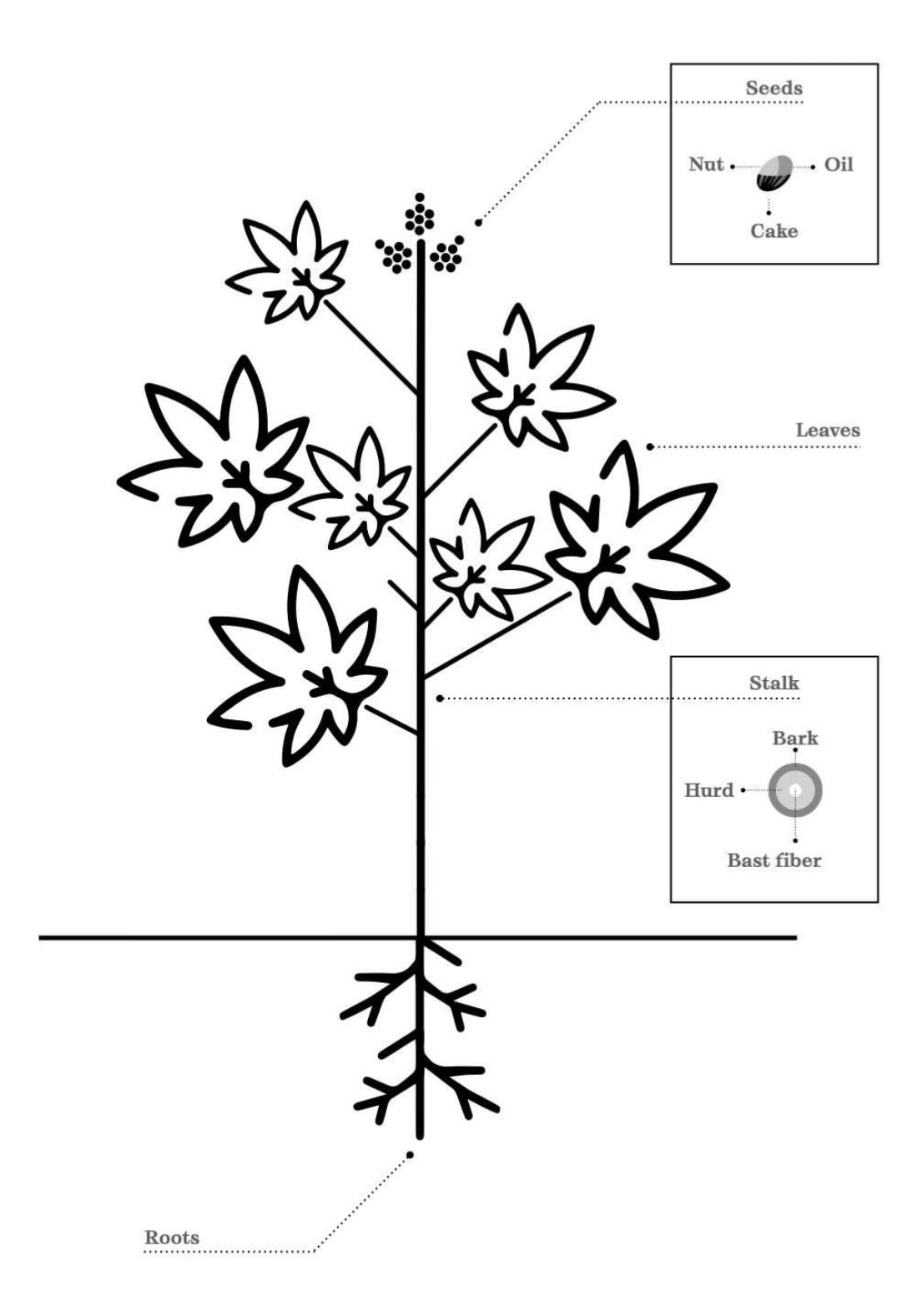
Industrial hemp grows rapidly, with a cycle of just 3-4 months, compared to the 7-25 years required for trees. Its deep roots stabilize and enhance soil fertility, making it a sustainable and efficient agricultural crop.
Hemp produces more fiber per acre than trees, is 100% reusable, and supports the circular economy without competing with food crops. It requires less water and pesticides, and when rotated with other crops, it helps manage pests and improves soil health.
With high cellulose content and low lignin levels, hemp is lightweight, flexible, and strong, making it suitable for various industries, particularly as environmental awareness increases.
Industrial Hemp, a variety of Cannabis sativa with low THC content (<0.30%), is non-psychoactive and highly versatile. Cultivated for fibers, seeds, oil, and CBD production, it supports sustainable practices across industries. Unlike cannabis (marijuana), which has THC levels of 20-30% for psychoactive effects, industrial hemp provides a safe, renewable solution for businesses.

© 2024 Tangho | All rights reserved.